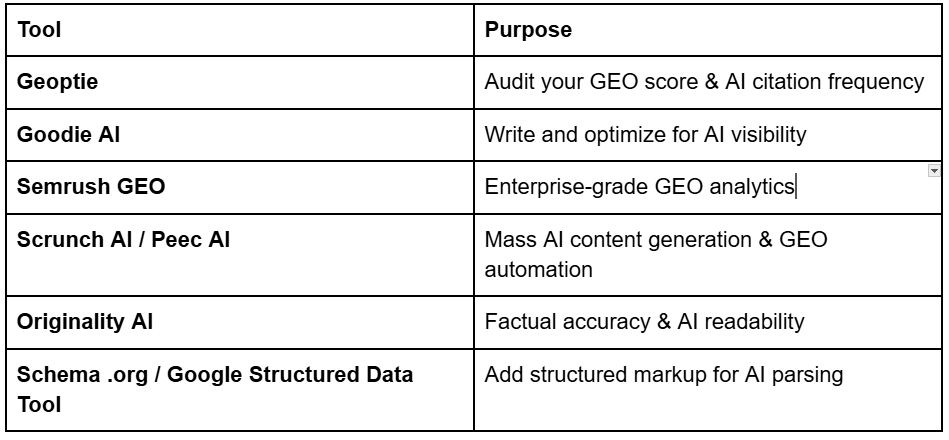The Evolution of SEO — Why Generative Engine Optimization (GEO) Matters for Enterprises
8/13/20252 min read
🧭 Introduction: SEO Is Evolving, and So Must We
Search Engine Optimization (SEO) has long been the backbone of online visibility. But with the rapid rise of AI-driven platforms like ChatGPT, Gemini, and Perplexity, a new player has entered the digital arena: Generative Engine Optimization (GEO). This shift isn’t just a technological tweak—it’s a transformation in how users find and interact with content online. GEO doesn’t aim to replace SEO, but to complement and extend it into the generative era.
🔄 From Ranking to Referencing: What’s Changing?
Traditional SEO focuses on improving your visibility in search engines like Google through:
Keyword targeting
Backlinks
Metadata
The goal is simple: get clicks to your site. But GEO operates differently. In AI-driven systems, users often don’t visit websites—they consume AI-generated summaries and answers. Here, visibility means being referenced or cited in the AI output.
🚀 Why GEO Matters More Than Ever for Enterprises
1. AI is becoming the new way people search for information
Millions now rely on generative AI for search-like behavior—summarizing, discovering, or comparing information. This is especially true for fast-paced industries like:
Tech
Fashion
E-commerce
Media
GEO ensures your content doesn’t just live online—it gets included in the AI’s answers.
2. SEO Traffic ≠ GEO Visibility
Even if your site ranks #1 on Google, it may never show up in ChatGPT’s answers unless optimized for GEO. That’s a missed opportunity for:
Brand mentions
Thought leadership
Product discovery
Citation in AI summaries
3. For Enterprises, Scale Is Key
Large businesses with vast content libraries (e.g., e-commerce platforms, SaaS providers, news media) can't manually optimize each page. GEO strategies using:
Automation
Structured data
Real-time updates
these are scalable ensuring consistent AI discoverability.
🧪 Examples of GEO in Action
Mayo Clinic (Healthcare) – Cited in AI health-related responses due to trust & structure
TripAdvisor (Travel) – Featured in AI travel itineraries & recommendations
Investopedia (Finance) – Referenced in financial definitions within generative tools
Fashion Retailers – New collection info pulled into AI shopping suggestions
News Publishers – Stories appear in real time AI-generated news summaries
🏭 Industries That Should Prioritize GEO
High-GEO Impact Industries:
📰 News & Media: Speed and citations in AI summaries matter
🛒 E-commerce: High SKU volume, fast-changing inventory
💻 Tech & SaaS: Regular product updates, documentation needs
✈️ Travel & Hospitality: AI-based booking guidance and destination info
🏥 Healthcare & Finance: Trust and accuracy in AI-generated insights
🛠️ GEO Tools Every Enterprise Should Use
🔧 How Enterprises Can Transition from SEO to GEO
Audit AI Presence – Use GEO tools to see how often your content appears in ChatGPT, Gemini, Perplexity, etc.
Elevate E-E-A-T – Showcase Experience, Expertise, Authority, Trustworthiness in your content.
Structure for Machines – Use clear sections, summaries, FAQs, and citation-ready formats.
Update Frequently – AI models prefer recent data—use automation to refresh and expand high-impact content.
Track Mentions – Measure citations in AI answers, not just traffic.
🧠 Final Thoughts: SEO + GEO = Future-Proof Digital Strategy
We are not entering a post-SEO world.
We’re entering a post-only-SEO world.
The future belongs to brands that combine searchability with generatability.
SEO gets you seen on Google
GEO gets you cited in AI
Together, they future-proof your visibility across all digital discovery platforms.


Quick Links
Connect with us
© 2024. All rights reserved.
+91-8956737466
